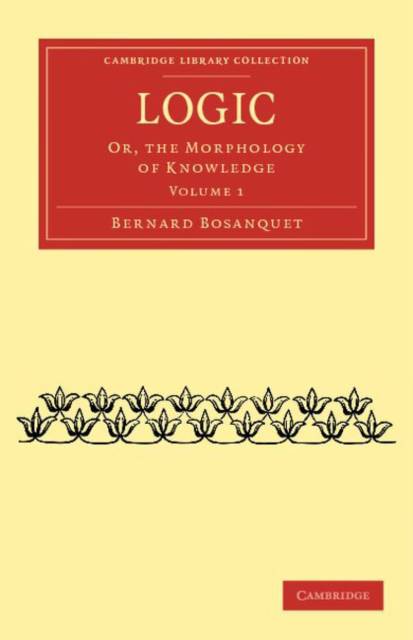
Bedankt voor het vertrouwen het afgelopen jaar! Om jou te bedanken bieden we GRATIS verzending (in België) aan op alles gedurende de hele maand januari.
- Afhalen na 1 uur in een winkel met voorraad
- In januari gratis thuislevering in België
- Ruim aanbod met 7 miljoen producten
Bedankt voor het vertrouwen het afgelopen jaar! Om jou te bedanken bieden we GRATIS verzending (in België) aan op alles gedurende de hele maand januari.
- Afhalen na 1 uur in een winkel met voorraad
- In januari gratis thuislevering in België
- Ruim aanbod met 7 miljoen producten
Zoeken
Omschrijving
After more than a decade teaching ancient Greek history and philosophy at University College, Oxford, British philosopher and political theorist Bernard Bosanquet (1848-1923) resigned from his post to spend more time writing. He was particularly interested in contemporary social theory, and was involved with the Charity Organisation Society and the London Ethical Society. Much of his work focused on the place of logic in philosophy, especially its role in metaphysical thought - the area where he is considered to have made his most important intellectual contributions. In 1888 he published this two-volume study of logic, addressing a variety of questions relating to logic, and drawing from the work of Hegel (1770-1831) in his examination. In Volume 1, Bosanquet considers the question of knowledge, what the act of naming implies, and judgment and measurement, which he considered to be integral to logic and consciousness.
Specificaties
Betrokkenen
- Auteur(s):
- Uitgeverij:
Inhoud
- Aantal bladzijden:
- 422
- Taal:
- Engels
- Reeks:
Eigenschappen
- Productcode (EAN):
- 9781108040198
- Verschijningsdatum:
- 8/12/2011
- Uitvoering:
- Paperback
- Formaat:
- Trade paperback (VS)
- Afmetingen:
- 140 mm x 216 mm
- Gewicht:
- 530 g

Alleen bij Standaard Boekhandel
+ 167 punten op je klantenkaart van Standaard Boekhandel
Beoordelingen
We publiceren alleen reviews die voldoen aan de voorwaarden voor reviews. Bekijk onze voorwaarden voor reviews.









